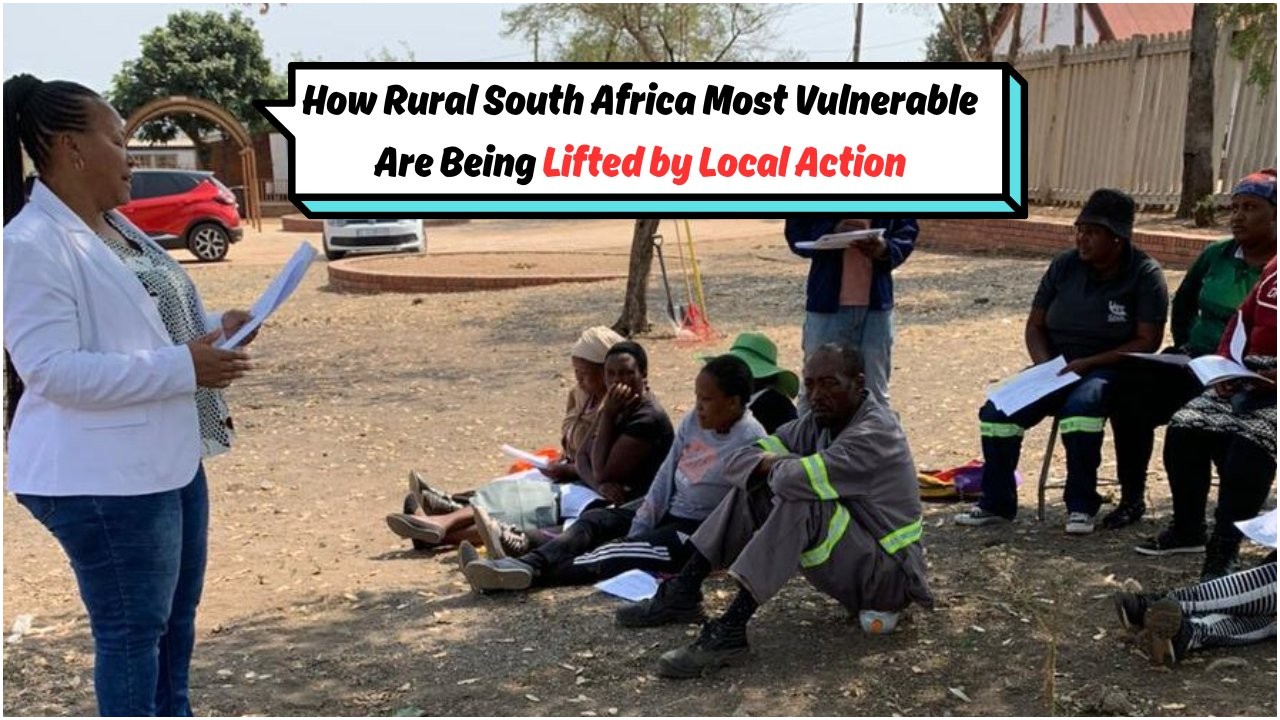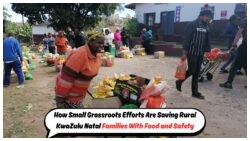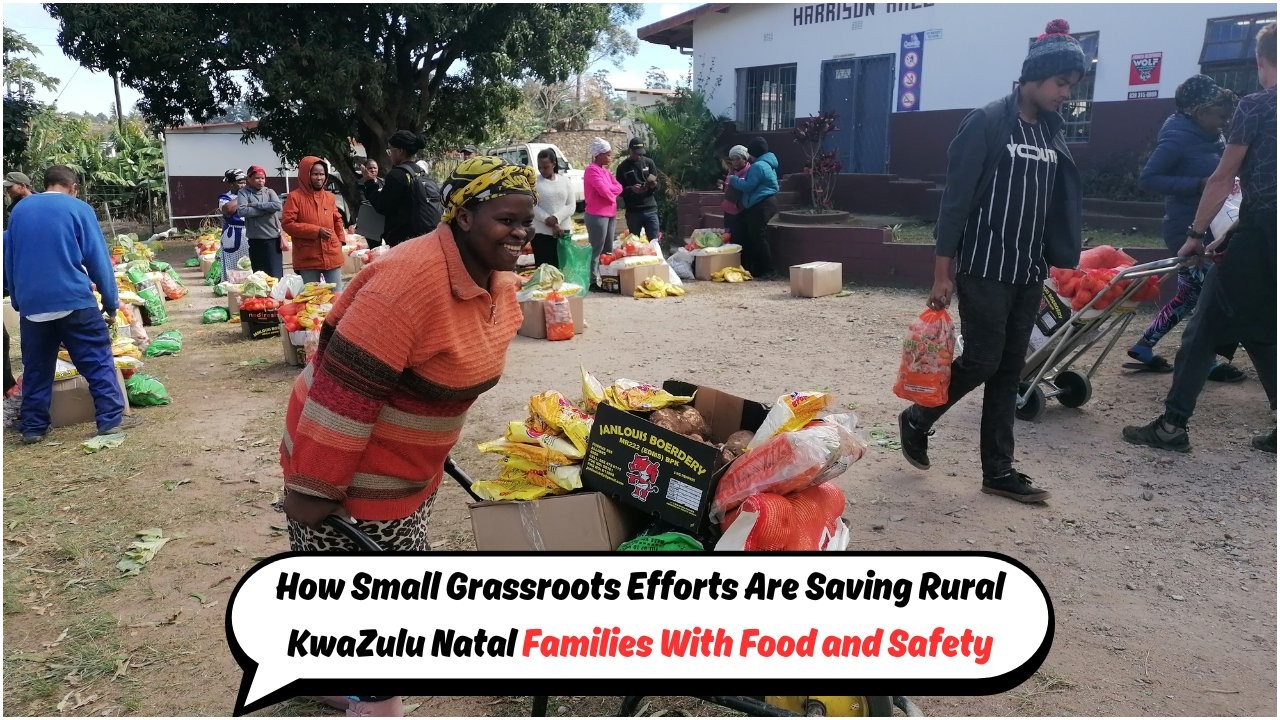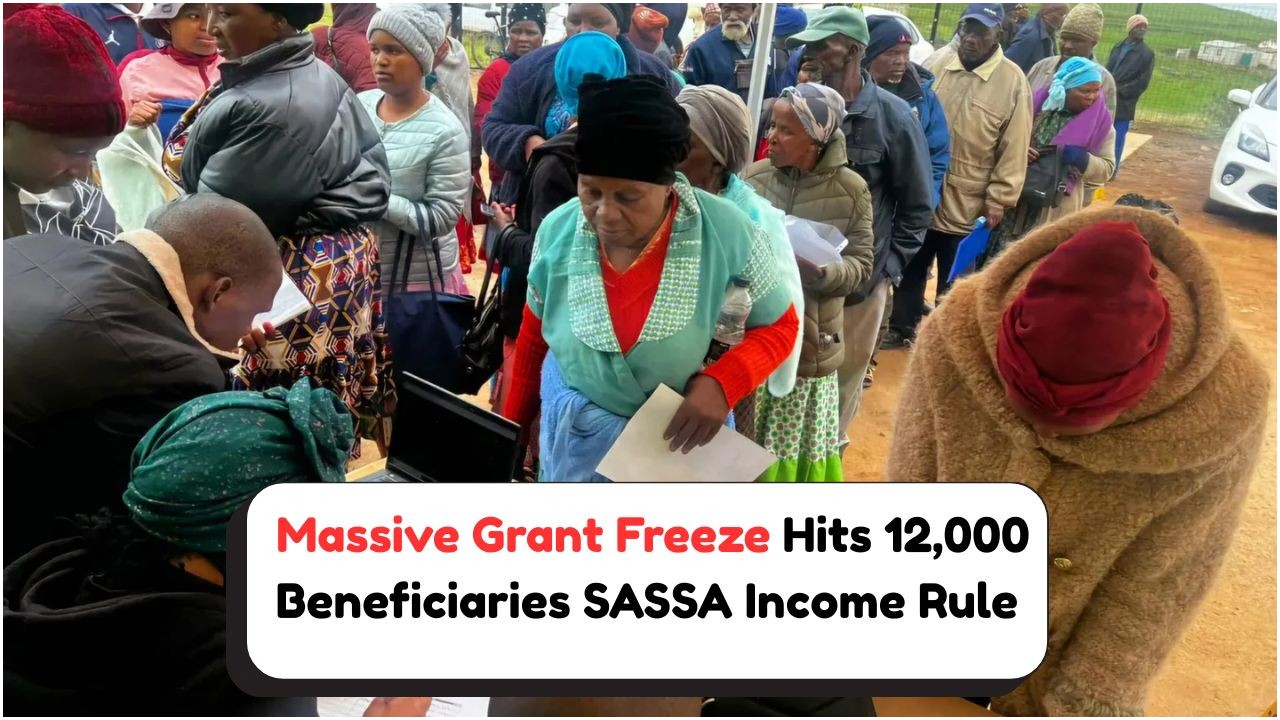Empowering Rural South Africa – In the heart of South Africa’s rural communities, where access to food, health services, and safe shelter remains a daily struggle, one organization is quietly transforming lives. Action in Isolation, a non-profit rooted in community care and resilience, has emerged as a lifeline for hundreds of vulnerable households and children across provinces like KwaZulu-Natal and Eastern Cape. At a time when poverty and marginalization have intensified due to economic disparities, natural disasters, and post-pandemic challenges, the organization is focused on holistic and inclusive support.This article dives deep into the initiatives, impact, and innovative models employed by Action in Isolation to uplift families living in isolation—especially those affected by HIV/AIDS, orphanhood, unemployment, and food insecurity. With a focus on nutrition, education, safety, and psycho-social care, the organization is bridging critical gaps left by underfunded social systems.We explore how Action in Isolation brings change through school feeding schemes, emergency food parcels, trauma counselling, and women-led microenterprises. The commitment to child welfare, empowerment of caregivers, and long-term community partnerships are the backbone of this mission.From grassroots mobilisation to collaboration with local government departments and donors, this is a story of dignity, hope, and transformation in the most underserved corners of South Africa.
Holistic Support Model for Vulnerable Children and Families
Action in Isolation’s approach is rooted in the belief that sustainable development begins with stable families and empowered communities. Their programs are not charity—they are change-driven investments.
- Daily meals for orphaned and vulnerable children in community centres
- School uniform and stationery provision for learners from disadvantaged households
- Mobile health screening and referral services
- Safe housing repairs for female-headed and child-headed households
- Trauma-informed counselling for children exposed to abuse or neglect
- After-school care centres with academic tutoring and creative development
- Caregiver workshops focused on parenting, budgeting, and food gardens
Child-Centered Initiatives With Lasting Community Impact
Children are at the centre of Action in Isolation’s programs, as they often bear the brunt of social collapse. By prioritizing safety, nutrition, and belonging, the organisation strengthens both individuals and the collective future.
 Unlock Savings of R8,000 with August Solar Grant – Apply Now and Power Your Home Sustainably!
Unlock Savings of R8,000 with August Solar Grant – Apply Now and Power Your Home Sustainably!
- 8 Community Child Care Hubs running across KwaZulu-Natal
- Over 3,500 children fed per week through community kitchens
- 20+ trained trauma counselors offering regular support sessions
- Partnership with 15 rural schools to ensure regular attendance
- Child helpline established for confidential reporting and referrals
- Digital storytelling workshops to help children express experiences safely
Community-Based Food Security and Nutrition Programs
Hunger remains one of the most persistent challenges in rural South Africa. Action in Isolation combats food insecurity with targeted, community-grown solutions that build local resilience.
- Monthly food parcel distributions to over 1,200 families
- Partnerships with small-scale farmers to promote local sourcing
- Backyard garden support and training for caregivers
- Youth-led food cooperatives for income generation and nutrition
- Nutritional screening for children under five and pregnant women
Food Parcel Distribution Metrics: April–July 2025
| Month | Families Supported | Total Meals Delivered | Kg of Maize Meal | No. of Eggs Distributed | Households with Children |
|---|---|---|---|---|---|
| April 2025 | 1,030 | 92,700 | 4,100 kg | 21,000 | 930 |
| May 2025 | 1,190 | 105,700 | 4,900 kg | 24,200 | 1,120 |
| June 2025 | 1,280 | 113,400 | 5,100 kg | 26,000 | 1,200 |
| July 2025 | 1,345 | 118,600 | 5,400 kg | 27,500 | 1,250 |
Empowering Women as the Backbone of Rural Households
Most caregivers and household heads assisted by Action in Isolation are women. The organisation actively invests in their development through microenterprise support and leadership training.
- Sewing cooperatives making school uniforms and sanitary pads
- Women-led savings groups formed to manage household budgeting
- Trainings on herbal medicine and sustainable health practices
- Financial literacy workshops in isiZulu and isiXhosa
- Peer mentorship programs among older and younger mothers
Women-Led Microenterprises: Impact by Province
| Province | Number of Groups | Women Beneficiaries | Monthly Avg. Income | Products Created | Access to Local Markets |
|---|---|---|---|---|---|
| KwaZulu-Natal | 14 | 210 | R2,300 | Clothes, soap, crafts | 9 local markets |
| Eastern Cape | 9 | 130 | R1,750 | Herbal oils, pads | 5 local networks |
| Limpopo | 6 | 80 | R1,200 | Dried food, candles | 3 cooperative partners |
Collaboration With Local Government and NGOs
Action in Isolation’s work is amplified through cooperation with local municipalities, schools, clinics, and social workers. These partnerships strengthen the reach and credibility of community support services.
- Memorandums of Understanding (MoUs) signed with 6 district municipalities
- Co-hosted awareness campaigns with Department of Social Development
- Referrals system linked to local clinics and child protection units
- Support from agricultural extension officers for food projects
- Data shared with health departments to monitor malnutrition trends
Departmental Contact Information
| Department | Office Location | Contact Number | Email Address |
|---|---|---|---|
| Department of Social Development | Pietermaritzburg District | 033 264 2400 | [email protected] |
| Department of Basic Education | Durban Regional Office | 031 327 8000 | [email protected] |
| Department of Health | Ugu Health District Office | 039 682 2111 | [email protected] |
| SASSA KwaZulu-Natal | Durban Regional Centre | 0800 60 10 11 | [email protected] |
| Action in Isolation HQ | Ixopo, KwaZulu-Natal | 039 834 4012 | [email protected] |
Bridging Education Gaps for Rural Learners
Educational inequality remains a massive obstacle in under-resourced areas. Action in Isolation steps in where public infrastructure fails, especially for orphans and vulnerable children.
- Free stationery kits, books, and uniforms for over 1,800 learners
- Monthly mentorship circles for teen girls and boys
- Free tutoring sessions during exam periods
- Safe learning spaces with solar-powered lights and desks
Challenges and Innovations in Rural Education
| Challenge | Action in Isolation’s Response |
|---|---|
| Lack of textbooks and supplies | Distribution drives and partnerships with publishers |
| Unsafe school buildings | Temporary learning shelters with NGO collaborations |
| Long travel distances | Bicycle donations and remote learning hubs |
| Dropout due to household chores | Childcare relief programs to keep teens in school |
FAQs
Q1: What regions does Action in Isolation operate in?
They primarily work in rural KwaZulu-Natal, Eastern Cape, and parts of Limpopo.
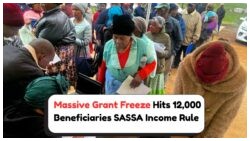 Urgent: SASSA Slashes R560–R2,350 Grants for 12,000 People—August Income Verification Critical
Urgent: SASSA Slashes R560–R2,350 Grants for 12,000 People—August Income Verification Critical
Q2: How can families apply for support?
Applications are done via local ward councillors or through a partnered school or clinic.
Q3: Is Action in Isolation government funded?
They are partially funded by donor agencies and collaborate with government departments.
Q4: Can volunteers join their community programs?
Yes, volunteers are welcome and can register through their website or regional offices.
Q5: Do they provide long-term care for orphaned children?
Yes, through community-based foster care models and safe housing schemes.
How does Action in Isolation empower children and vulnerable households in rural South Africa?
Through various programs and initiatives tailored to their specific needs.
